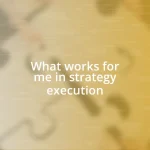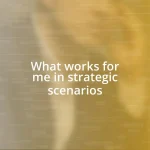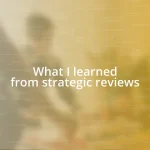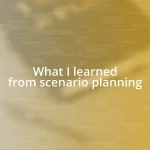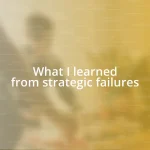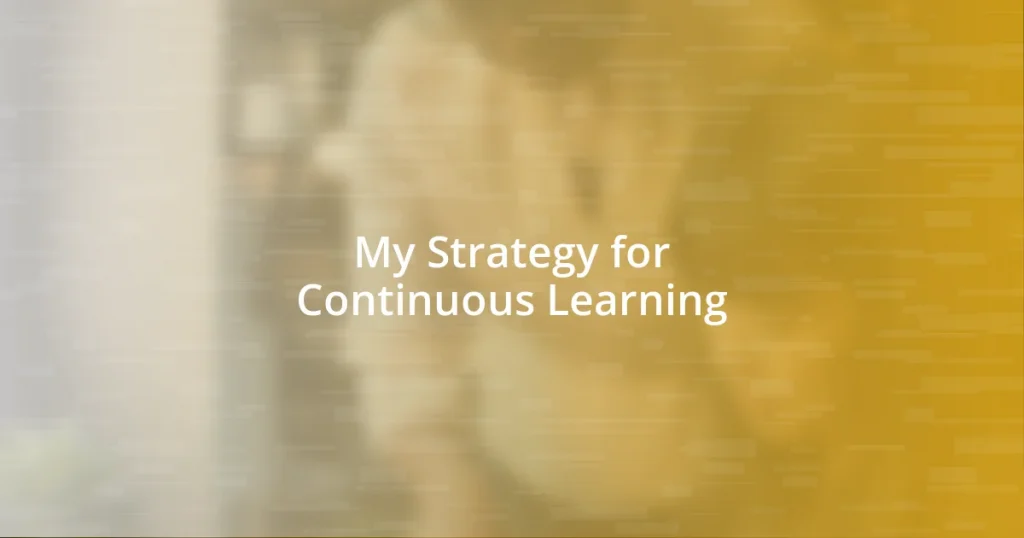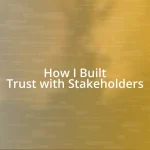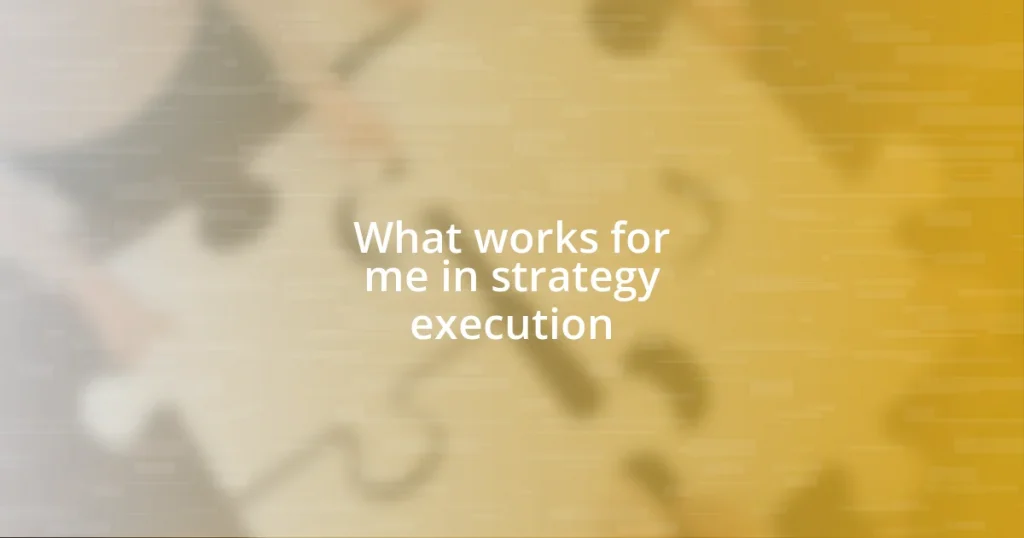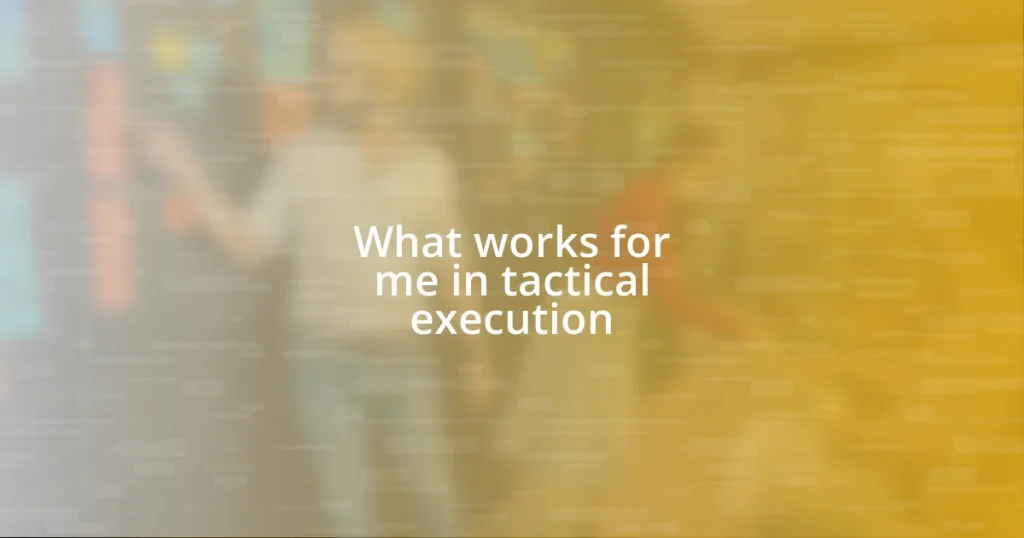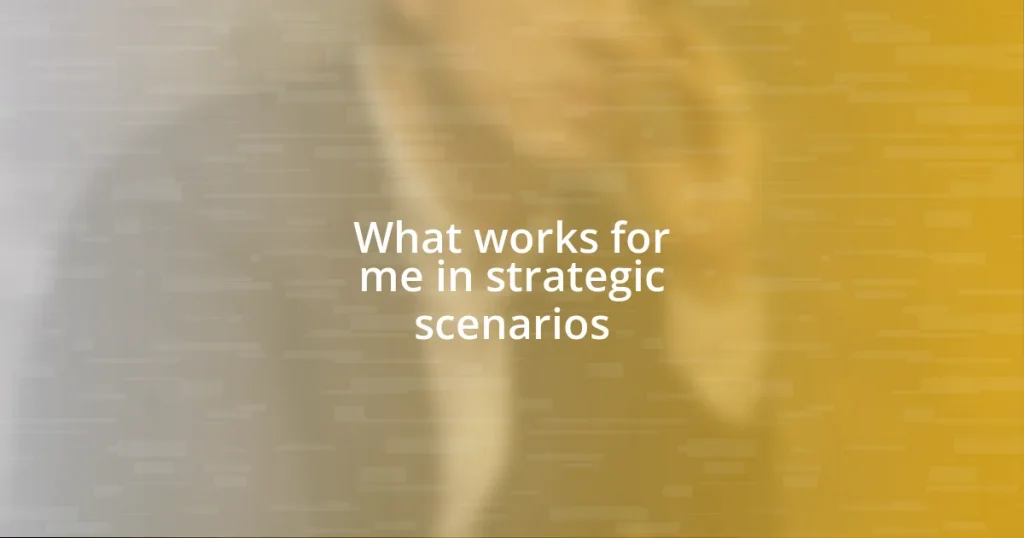Key takeaways:
- Continuous learning is a mindset that encourages personal growth through daily experiences and interactions, not just formal education.
- Setting SMART goals and creating a structured yet flexible learning schedule enhances accountability and motivation in the learning journey.
- Applying learned knowledge in real-life situations and teaching others reinforces understanding and aids in personal development.

Understanding Continuous Learning
Continuous learning is more than just attending classes or completing online courses; it’s a mindset that embraces growth and adaptability. I often find myself reflecting on how my learning journey never truly ends. Have you ever felt that rush of excitement when you stumble upon a new idea that shifts your perspective? It’s in those moments that I realize learning isn’t confined to formal education; it’s woven into our daily experiences.
When I think about continuous learning, I recall a time when a simple conversation with a colleague sparked a deep interest in digital marketing. I had been so focused on my own tasks that I didn’t realize how much knowledge was right within reach. Questions emerge: How often do we miss opportunities to learn from those around us? By actively engaging with others, we foster an environment where learning becomes a natural, ongoing process.
Moreover, continuous learning aligns closely with my passion for personal development. It feels invigorating to embrace the discomfort that comes with stepping outside of my comfort zone. Like when I took up public speaking—initially daunting, but ultimately rewarding. Isn’t it fascinating how every new skill not only adds to our arsenal but also enriches our understanding of ourselves? By embracing this journey, we unveil layers of potential we never knew existed.

Benefits of Continuous Learning
The benefits of continuous learning are profound and multifaceted. Personally, I’ve experienced how it cultivates adaptability in an ever-changing world. The more I learn, the more confident I feel in tackling challenges. I recall a time when I joined a workshop on coding. Initially, I felt out of my depth, but as I grasped the concepts, it not only opened new career doors but also transformed my problem-solving approach. This newfound skill has positively impacted my collaborations at work, fostering innovation and creativity.
Here are some key benefits of embracing continuous learning:
- Enhanced Career Opportunities: Staying updated with relevant skills can lead to promotions and new job offers.
- Improved Brain Function: Engaging in new learning activities keeps the brain active, which can improve memory and cognitive function.
- Confidence Boost: Mastering new skills increases self-esteem and readiness to face new challenges.
- Stronger Community Connections: Learning with others fosters relationships, creating a network of support and shared knowledge.
- Greater Resilience: Continual learning equips us to handle uncertainties, making us more adaptable in turbulent times.

Setting Learning Goals
Setting learning goals is an essential step in my continuous learning journey. I often think of these goals as signposts guiding me along the path of personal and professional growth. For example, when I wanted to enhance my presentation skills, I set a specific goal to attend at least three workshops within six months. This not only provided me with a clear target to reach but also held me accountable for my own development.
I also find it helpful to categorize my learning goals into short-term and long-term objectives. Short-term goals are more immediate, which can be motivating—like dedicating time every week to read a new book or article in my field. On the other hand, long-term goals often involve more significant changes and demand sustained effort. For instance, I once aimed to earn a certification in project management over the course of a year, which required consistent study and practice. This framework allows me to maintain focus and measure my progress effectively.
Another aspect I prioritize is making my learning goals SMART: Specific, Measurable, Achievable, Relevant, and Time-bound. For instance, instead of saying, “I want to learn more about data analysis,” I turned it into, “I will complete an online data analysis course and apply the techniques to a personal project within two months.” This clarity is what transforms vague intentions into solid actions that lead to real growth.
| Goal Type | Description |
|---|---|
| Short-Term | Focused on immediate skills or knowledge, motivating for quick wins. |
| Long-Term | Encompasses broader objectives requiring sustained commitment over an extended period. |
| SMART Goals | Specific, Measurable, Achievable, Relevant, and Time-bound goals enhance clarity and accountability. |

Selecting Learning Resources
Selecting the right learning resources can significantly enhance your educational journey. I once found myself overwhelmed by the sheer amount of options—books, online courses, webinars, and podcasts. It was a bit daunting, to say the least! However, I learned to prioritize resources that aligned with my goals and fit my learning style. For example, I prefer interactive platforms like online courses with hands-on projects. They encourage engagement, which keeps me motivated.
I also consider the credibility and relevance of the resources. A few years ago, I stumbled across a YouTube channel with tons of tutorials; while informative, not all content was accurate or presented by experts. After experiencing some confusion from poorly explained topics, I shifted to resources from established institutions or renowned professionals. It reinforced my belief that quality often trumps quantity when it comes to learning materials.
Lastly, I’ve embraced community-based resources, such as forums or study groups. These aren’t just about consuming information; they allow for the exchange of ideas and experiences. Engaging with others has not only deepened my understanding but has led to lasting friendships. Have you ever felt that spark of inspiration from a discussion? I certainly have, and it’s moments like these that remind me how dynamic learning can truly be.

Creating a Learning Schedule
Creating a learning schedule is a crucial step that I have found tremendously beneficial in my learning journey. When I think of my schedule, I compare it to a canvas where I can paint my learning aspirations. A while back, I design a weekly plan that included dedicated time slots for reading, online courses, and hands-on projects. This intentional approach helped me to prioritize learning and avoid the overwhelming feeling of cramming everything into my days.
One technique that has worked well for me is the time-blocking method. I allocate specific blocks of time each week to different topics, allowing me to delve deep without distractions. For instance, I remember a month when I dedicated my Saturday mornings to studying web development. This routine made learning feel like a regular part of my life rather than an afterthought. Have you ever tried setting aside a consistent time just for learning? It’s amazing how quickly those small blocks accumulate into substantial knowledge.
To keep myself motivated, I incorporate flexibility into my schedule. Life can be unpredictable, and I’ve learned the hard way that rigid plans often lead to frustration. Recently, when a family commitment interrupted my study plans, I simply shifted my learning to the evenings instead without skipping a beat. This adaptability not only kept me on track but also reinforced that learning is a personal journey, shaped by my unique circumstances and priorities. How do you ensure your learning schedule is both structured and flexible? Embracing this balance can be the key to thriving in your continuous learning journey.

Tracking Learning Progress
Tracking my learning progress has been a game changer for me. I remember setting specific milestones early on in my self-study journey, which gave me something tangible to work towards. For instance, after completing a module in a course, I’d take time to reflect on what I’d learned and how I could apply it to real-life scenarios. This practice not only reinforced my understanding but also fueled my motivation—who doesn’t love ticking things off a checklist?
In my experience, using tools like journals or digital planners can provide that extra layer of accountability. I’ve tried various apps, but what really stuck for me was maintaining a simple notebook where I jot down key concepts and personal reflections after each learning session. It’s become like a treasure chest of my growth, capturing not just facts but how I felt during those moments. Have you ever flipped through old notes and felt a surge of pride over how far you’ve come?
Recently, I began sharing my learning goals with friends, and that added a new dimension to my tracking strategy. We have regular check-ins to discuss our progress, and I’ve found that the support and encouragement from others can be incredibly motivating. There’s something about vocalizing your goals that holds you accountable. Have you experienced how sharing aspirations can foster a sense of community? It certainly has made my process richer and more interactive, reminding me that learning isn’t just an individual pursuit but can also thrive within a network of support.

Applying Knowledge in Real Life
It’s fascinating how I often find myself applying what I’ve learned in unexpected areas of my life. For instance, while studying communication strategies, I realized I could use these techniques to enhance my conversations in both personal and professional settings. I still remember a meeting where I applied active listening skills I had just learned; it completely shifted the dynamic of our discussion and fostered a more collaborative environment. Have you ever noticed how a simple change in your approach can transform a conversation?
Another memorable experience occurred while I was learning about financial literacy. I took that knowledge and applied it to my own budgeting. I started to keep track of my spending meticulously, leading me to surprising insights about my habits. It was almost like peeling back layers to reveal truths I hadn’t initially seen. Do you ever find that practical applications not only reinforce what you learn but also bring about personal growth?
I also believe that teaching others is a powerful way to solidify knowledge. A couple of months ago, I volunteered to tutor a friend who was struggling with coding concepts I had recently mastered. Watching him light up as he grasped the material felt incredibly rewarding, and I noticed that, in teaching him, I deepened my own understanding. Have you experienced the joy of sharing knowledge with someone and seeing them flourish? It’s one of those unique moments that makes the entire learning experience feel worthwhile.
